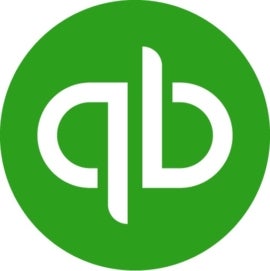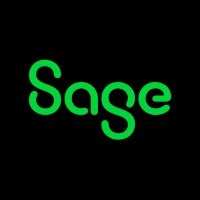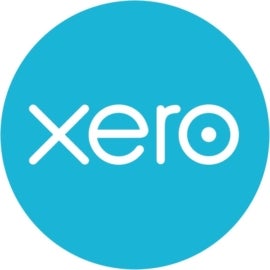- Best for full-stack business resource management: QuickBooks
- Best for high clientele count: FreshBooks
- Best for AI-powered finance management: Sage Intacct
- Best free solution: Wave
- Best for complex, distributed teams: Zoho Books
- Best for solopreneurs: ZipBooks
- Best enterprise-level solution: NetSuite
- Best hassle-free finance tool for small businesses: Kashoo
Xero is an accounting software solution aimed at small and mid-sized businesses, as well as professional accountants and bookkeepers. Featuring double-entry accounting, it’s designed to maximize ledger accuracy, error prevention and fraud protection. The tool boasts over 3.5 million users, but that doesn’t mean it’s a perfect fit for every use case.
In this article, we’ll take a closer look at several alternatives to Xero so you can choose the best software for your business.
Jump to:
- Top Xero competitors and alternatives: Comparison table
- Top Xero competitors
- Is Xero worth it?
- Do you need an alternative to Xero?
- Methodology
Top Xero competitors and alternatives: Comparison table
No business lasts long without an accurate financial record and an effective system for managing cashflow. But there is more to accounting than just managing a spreadsheet, and different industries have different financial concerns. We’ve highlighted four major areas of functionality and identified which solutions fulfill these areas.
| Starting price for paid plans | Basic accounting functions | Time/project tracking functions | Logistics functions | HR functions | ||
|---|---|---|---|---|---|---|
| Xero | $15/mo. | Yes | Yes | No | Yes | |
| QuickBooks | $30/mo. | Yes | Yes | Yes | Yes | |
| FreshBooks | $17/mo. | Yes | Yes | No | Yes | |
| Sage Intacct | Call for quote | Yes | Yes | Yes | Yes | |
| Wave | Free for life | Yes | No | No | Yes | |
| Zoho Books | $20/mo. | Yes | Yes | Yes | Yes | |
| ZipBooks | $15/mo. | Yes | No | No | No | |
| NetSuite | Call for quote | Yes | Yes | Yes | Yes | |
| Kashoo | $216/yr. | Yes | No | No | No |
Top Xero competitors
Bigger isn’t always better and less isn’t always more. Some businesses only need basic accounting support while others need comprehensive software suites to manage processes at scale. The list of competitors below reflects those varied use cases and are identified by their target market applications.
QuickBooks: Best for full-stack business resource management

The foremost name in business financial software, QuickBooks by Intuit is an industry powerhouse that has been around since the rise of digital systems. Designed to help organizations of any size track income and expenses, inventory, production costs and a great deal more, QuickBooks is among the most widely used solutions in the business landscape today.
Pricing
The core QuickBooks product has four pricing tiers:
- Simple Start: Starts at $30 per month.
- Essentials: Starts at $55 per month.
- Plus: Starts at $85 per month.
- Advanced: Starts at $200 per month.
The Simple Start and Essentials plans primarily include core accounting functions, with most advanced features like inventory and profitability projections available at only the higher tiers. In some cases, like payroll, these features are part of distinct add-on subscriptions that increase the monthly base cost when included.
You can get QuickBooks for 50% off for the first three months to save a little money upfront, or you can take advantage of the 30-day free trial to see if it’s the right fit for you. However, you can’t do both — it’s either the discount or the trial.
Features
- Fully managed cashflow from accounts receivable to accounts payable.
- Invoices and estimates, measured financial performance over time and generated reports and forecasts.
- Easy handling of payroll, taxes, business bank accounts and more.
Pros
- An all-in-one solution, especially for businesses that need to track physical resources.
- Extensive tax support through add-ons and support from human experts.
- Widely used and integrated, making it easy to implement and troubleshoot.
Cons
- Many key features are part of add-ons that drive up costs.
- Base cost is higher than average.
- Robust platform options may be more than simpler use cases need.
- Strict user limits can make scaling difficult.
For more information, read the full QuickBooks review.
FreshBooks: Best for high clientele count

FreshBooks offers software solutions to freelancers, solopreneurs, small businesses and organizations that rely on contractors. With tools to support accounting, invoicing, time-tracking, payroll and client communication, it offers many of the core features QuickBooks does without the added costs or tier-based limitations.
Pricing
FreshBooks has three standard pricing tiers, plus an enterprise tier:
- Lite: Starts at $17 per month.
- Plus: Starts at $30 per month.
- Premium: Starts at $55 per month.
- Select: Call for custom pricing.
The Select tier also offers a dedicated account manager, specialized features and help migrating from other accounting software.
Like QuickBooks, you can choose to have FreshBooks at 50% off for the first three months or take it for a spin with a 30-day free trial, but you can’t have both.
Features
- Unlimited invoices and clients (but only for higher tiers).
- Tracking for time, expenses, projects, activities and invoice status.
- Payroll integration with Gusto.
Pros
- Lower costs that includes equivalent features to many enterprise solutions.
- Premium tier has unlimited invoices and unlimited client accounts.
- Mobile app for ease and mileage tracking.
Cons
- Does not include inventory tracking.
- Despite lower subscription costs, Lite and Plus subscribers are still limited to 5 and 50 max clients, respectively.
- Additional users cost extra.
- Payment processing fees can add up, with only the enterprise tier benefiting from reductions or caps on said fees.
For more information, read our FreshBooks review.
Sage Intacct: Best for AI-powered finance management

Sage is a finance platform that incorporates extensive business intelligence functionality. Its two core products, Sage Intacct and Sage X3, function as analytics-boosted versions of SMB finance and enterprise ERP, respectively. The suite also includes products for payroll, CRM, human asset management, time tracking and more.
Pricing
Sage doesn’t have transparent pricing on its site, so you’ll have to call for a quote.
Features
- Designed to meet the demands of specialized industries, including construction, healthcare, hospitality, manufacturing and more.
- Offers fixed asset management, Salesforce integration and both a desktop and cloud-native version of the app.
- Includes some of the most advanced financial and resource analytics in the market.
Pros
- Built from the ground up to support business intelligence, helping organizations make smarter, more effective financial decisions.
- Customizable feature packages include HR and payroll, inventory and resource management, CRM and more.
Cons
- Website doesn’t list pricing, but user reviews often cite high subscription costs.
- Software is less intuitive to use and implement.
Wave: Best free solution

Wave Accounting is a free-for-life accounting solution. Its user-friendly accounting software was built primarily for freelancers, small-business owners and growing businesses that need collaborative, multi-business accounting software.
With Wave, you can track your income and expenses, create journal entries, manage multiple businesses, accept online pages and even process payroll with the Wave Payroll add-on.
In contrast to FreshBooks’ cheapest plan ($17 a month), Wave Accounting includes true double-entry accounting, which is a more accurate accounting method compared to FreshBooks Lite’s single-entry bookkeeping.
Plus, Wave lets you add as many users as you want to one account, including your accountant. If you need to collaborate with multiple business partners, Wave Accounting is the cheapest way to do so.
Learn more by reading our Wave Accounting review.
Pricing
Wave Accounting is completely free. You can track expenses, send invoices and accept online payments for no cost beyond the basic transaction fee that always accompanies payment acceptance.
If you want payroll software that syncs with your Wave Accounting plan, Wave Payroll is the best choice. While it does cost a fee, it’s self-service plan is one of the least expensive payroll plans on the market:
- Wave Self-Service: $20 a month + $6 per person paid per month.
- Wave Full-Service: $40 a month + $6 per person paid per month.
Features
- Income and expense tracking.
- End-of-year tax form generation.
- Unlimited users, including accountant access.
- Invoicing and online payment acceptance.
- Highly rated mobile accounting apps (iOS and Android).
- Optional payroll add-on.
- Integrations available through Zapier.
Pros
- No-fee accounting and invoicing software.
- Seamless syncing with Wave Payroll.
- Free multi-business management.
- Free, unlimited bank account and credit card connections.
Cons
- One plan (limited scalability).
- No built-in third-party integrations.
- Email- and chat-based customer support only.
Zoho Books: Best for complex, distributed teams

Zoho Books is the accounting and financial portion of the full Zoho software suite. An expansive platform built to power inventory systems, CRM efforts, email automation, human resources, IT management and more, Zoho is one of the broadest software tool sets on the market. Businesses can use Zoho Books as a standalone product or combine it with any number of other products to customize the level of functionality brands need.
Pricing
- Free: Costs $0 (for businesses below $50k yearly minimum revenue threshold).
- Standard: Costs $15 per organization per month, billed annually.
- Professional: Costs $40 per organization per month, billed annually.
- Premium: Costs $60 per organization per month, billed annually.
- Elite: Costs $120 per organization per month, billed annually.
- Ultimate: Costs $240 per organization per month, billed annually.
Features
- Designed around organizations that need to manage multiple locations, departments, teams, facilities and so on, regardless of distance.
- Full integration with the extensive and expansive Zoho software suite.
- Robust features available for free for business users under $50k annual revenue.
- Multiple pricing tiers allow organizations to scale their subscription in step with increasing needs as the business grows.
Pros
- Free tier includes all common accounting features, plus many usually reserved for paid subscribers.
- All paid subscribers get access to payment gateway integrations that include nearly all major market leaders.
- Subscribers can manage multiple organizations or locations while still minimizing software costs.
Cons
- Limits to low user headcount, even at top tiers, with add-on users requiring a per-user fee increase.
- Additional modules (like IT, HR, CRM, etc.) add to monthly subscription costs, making the full suite much more expensive.
- Add-ons are not supported on the free plan.
ZipBooks: Best for solopreneurs

ZipBooks combines several of the advantages of the entries listed above and packages them into a free or low-cost option for the smallest of businesses. Offering unlimited invoices, vendors and customers even on the free plan, ZipBooks helps solopreneurs and small teams run their finances smarter, without having to pay hundreds a month in software fees.
Pricing
- Starter: Free.
- Smarter: Costs $15 per month.
- Sophisticated: Costs $35 per month.
- Accountant: Custom pricing.
Features
- Easy-to-use solution with straightforward billing and subscription tiers.
- Acceptance of digital payments through Square or PayPal.
- Custom “Accountant” tier for professionals that want to extend ZipBooks functionality to their clients.
Pros
- Unlimited invoices, vendors and customers for every plan.
- Acceptance of digital payments for every subscription tier.
- Unlimited users for top paid tiers.
Cons
- Includes a shorter feature lists than most other options.
- Free plan limits subscribers to a single user and a single connected bank account.
NetSuite: Best enterprise-level solution

Just as QuickBooks is the foremost name in financial software, NetSuite has been a pioneer of cloud-based business systems since the very beginning. The full platform encompasses ERP, global business management, human capital management, omnichannel commerce and much more. Unlike other options in this list, however, NetSuite is all-or-nothing. Using any of the products requires paying for the whole platform, meaning enterprises are the best suited to this accounting solution.
Pricing
Unfortunately, you have to contact NetSuite for a quote. To get started, simply fill out a form on the NetSuite site.
Features
- Complete, enterprise-wide visibility into finances, with real-time updates and robust reporting options.
- Mobile functionality, making critical financial functions accessible from nearly anywhere.
- Powerful tools to support large organizations in regulatory compliance.
Pros
- Full-service software suite.
- Customizable integration, automation and implementation.
- Designed with massive, complex organizations in mind.
Cons
- Includes higher cost thresholds than other available options.
- Requires extensive integration and deployment, both in the digital environment and in the organization.
- Setup and onboarding often takes a significant amount of time.
Kashoo: Best hassle-free finance tool for small businesses

Billing itself as “The World’s Simplest Accounting Software,” Kashoo is designed around ease-of-use and the streamlining of accounting processes. Focused solely on accounting functionality, Kashoo seeks to strip away all of the problematic or difficult aspects of managing business finances for small organizations. With only two products offered, it won’t meet every business’s needs, but it provides solid functionality for specific use cases.
Pricing
Kashoo has two products, TrulySmall Accounting and Kashoo. Kashoo represents the more advanced, customizable option, while TrulySmall is the automated solution.
- TrulySmall Accounting: Costs $216, billed annually.
- Kashoo: Costs $324, billed annually.
Features
- Double-entry functionality with robust customization and detailed reporting.
- Automated bookkeeping and finance management.
Pros
- Deep financial functionality for small businesses.
- Extensive automation support.
Cons
- Fees are exclusively billed annually.
- Limited functionality for businesses needing payroll, HR, inventory or time tracking, or other supplemental features.
Is Xero worth it?

Xero represents a middle ground between complex, expensive solutions and simple, affordable ones. With plans ranging from $13 per month to $70 per month, there are options to fit most small and midsize budgets while also offering room to grow. And, as a double-entry solution, it prioritizes accuracy and compliance.
Xero pricing
- Early: Costs $15 per month.
- Growing: Costs $42 per month.
- Established: Costs $78 per month.
If you haven’t gotten Xero yet and are thinking about it, you can get 50% off your first three months.
Xero pros
- Simple, affordable functionality for new businesses.
- Optional payroll add-on through Gusto for every tier.
- 24/7 online support.
- Easy implementation.
- Contractless subscriptions you can cancel anytime (with one month’s notice).
Xero cons
- Basic subscriptions limit users to just 20 invoices or quotes.
- Only top tier subscribers benefit from multiple currency support, project tracking and claiming expenses.
- Payroll add-on is an additional $40 per month.
Do you need an alternative to Xero?
Xero is a solid option for businesses as they start to get organized with their finances, but some users may find it restrictive feature-wise, especially compared to other options with similar price points. Ultimately, though, you have to decide if its features and functionality will adequately support your particular business.
Methodology
While writing this comparison article, we researched vendor websites and customer reviews on sites like Trustpilot and Gartner to fully understand the offerings and target use cases of each solution.


